Google Adwords PPC (pay per click) campaigns use match types to tell Google how your PPC ads campaign should be coordinated.
Four distinct keyword match types can be used when you set up your PPC campaign with Google AdWords.
Let us look at the four keyword match types and how they can be used to set up your AdWords campaign.
Google Adwords Broad match
Just as the name suggest, broad match reaches the widest audience. If you choose a broad match, your ad will appear whenever a user searches any word or phrase present in your selected keywords. For instance, if you use broad match on “best restaurant in London”, your ads will appear for “London restaurant”, “restaurant in London,” or “London’s finest restaurant.” Google may likewise show your ads using syllables – for instance, “top dinners,” which is void of any of your keywords.
The downside with using broad match is that cost can rapidly add up. Since your ad may show up for irrelevant searches. Again, since Broad match is the default setting, you must be careful not to settle on this unintentionally.
Google Adwords Modified Broad Match
Unlike Broad match, modified broad match allows some restriction to keyword search results. It uses the “+” parameter to restrict results. This means when you include the plus sign before a term in your keyword; you’re telling Google that the search inquiry must include that term. For example, for the keyword “best restaurant in London,” if you add the “+” parameter in front of London, (+London) then Google will display only results that contain “London.”
Google Adwords Phrase Match Type
Phrase match type focuses on displaying your keywords in the definite order you entered them. There may be other words before or after your key phrase but not between. For example, if your key phrase is “luxury spa,” using the Phrase Match Type your ads will appear for ” best luxury spa” or “luxury spa deals.” Unfortunately, your ads won’t feature if a user searches “luxury holiday spa.”
Google Adwords Exact Match Type
Amongst all the other match types, the Exact Match Type is the most restrictive and target driven match type. If you have a limited budget or running another campaign, for example, search engine optimisation then the Exact Match Type is the right match type for you.
With this match type, your ads will appear only when your exact keyword phrase is typed – hence the name Exact Match Type. For instance, using the “luxury spa” keyword example, your ad will appear only if those exact words in the exact order was entered.
The benefit is that users who click on your ad when searching for that correct expression will probably be interested in your product or service, so using Exact Match Type can push aside unwanted costs and keep conversion rates pretty high. However, you should bear in mind that you’ll have less traffic due to high restrictions.
There you have it all four Match types you need to consider when setting up your Google AdWords campaign.
Your circumstances and expectations may be different from others. Therefore, determine what is right for you and your business before plunging in.
Have you launched any Google Adwords campaigns? We would love to hear about your experiences and what results you got?
